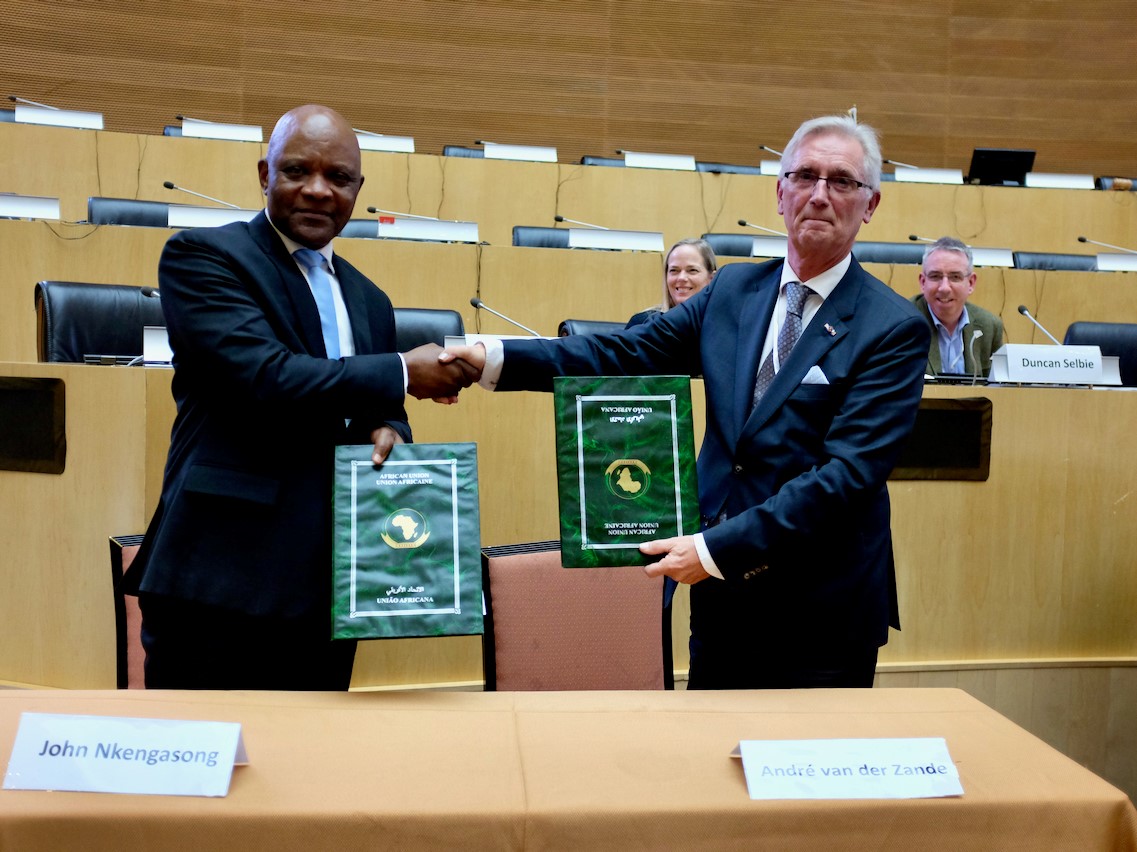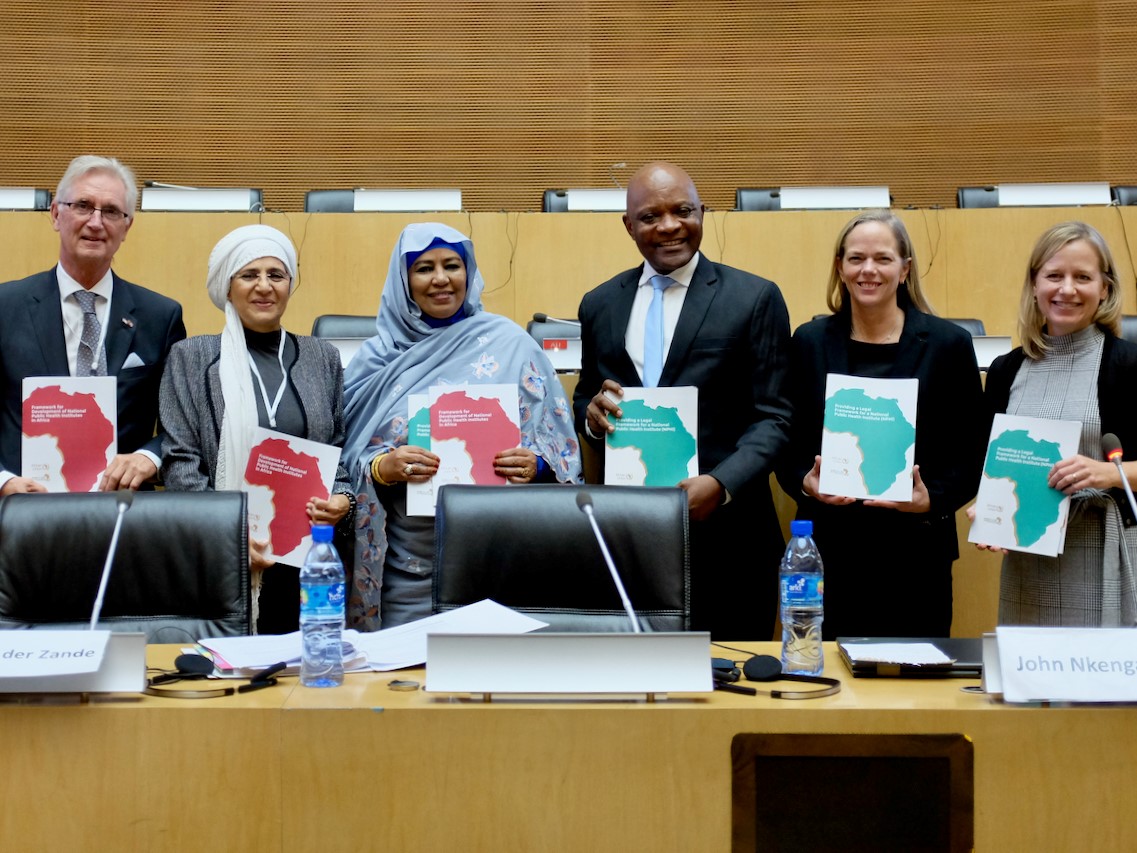IANPHI and Africa CDC Formalize their Partnership at Annual Meeting in Ethiopia
On December 4, 2019, at IANPHI’s Annual Meeting in Ethiopia, Africa CDC Director John Nkengasong and IANPHI President André van der Zande signed a Letter of Intent for a public health partnership.

From left to right: John Nkengasong, director of Africa CDC, and André van der Zande, president of IANPHI, at the 2019 IANPHI Annual Meeting
The agreement between the Africa Centres for Disease Control and Prevention (CDC) and IANPHI formalizes a long-term, fruitful relationship that started when Africa CDC was founded in 2017. Through this agreement, IANPHI and Africa CDC pledge to support one another’s mission and vision, to support one another in reducing the international disease burden and in improving population health in Africa, by helping build and strengthen African NPHIs.
In recent years, IANPHI supported several Africa CDC projects including their website, first two annual reports, newsletters, and other marketing materials. Africa CDC contributed to the organization and hosting IANPHI’s annual meeting in December, and the Africa CDC Institute for Workforce Development, established in partnership with Emory University's Rollins School of Public Health, also held a leadership and management training for African NPHI directors.

From left to right: André van der Zande, president of IANPHI, Natalie Mayet, deputy director of the National Institute for Communicable Disease in South Africa, Amira Elfadil, social affairs commissioner of the African Union, John Nkengasong, director of Africa CDC, Ellen Whitney, director of IANPHI U.S. Secretariat, and Shelly Bratton, associate director for program development for the National Public Health Institute Program in the Division of Global Health Protection at U.S. CDC
Together with H.E. Amira Elfadil, social affairs commissioner of the African Union, Dr. Nkengasong and Dr. van der Zande, along with Dr. Natalie Mayet from South Africa's NICD, Shelly Bratton from U.S. CDC and Ellen Whitney from IANPHI, launched two essential new frameworks that serve as essential resources to countries as they work to establish new NPHIs: a Framework for NPHI Development in Africa and a document on providing a Legal Framework for a National Public Health Institute.
Adapted from IANPHI’s Framework for NPHI Development, the Framework for NPHI Development in Africa is tailored for African countries and includes core aspects of their operations and public health functions. It also covers topics for NPHIs to consider as they develop, such as mandates, guiding principles and activities that are vital to create, strengthen and sustain NPHIs. The appendices serve as guidance documents for African countries that want to create more robust and effective national public health capacities.
The creation of this document, available in English, French, Portuguese and Arabic, was a collaborative effort between the Africa CDC, the Human Development and Public Health Initiative of Nigeria, Mozambique’s Instituto Nacional de Sáude, Public Health England, South Africa’s National Institute for Communicable Diseases, the U.S. CDC, Zambia National Public Health Institute, and IANPHI.
The purpose of the second document introduced at the meeting - Providing a Legal Framework for an NPHI - is to describe the types of legal mechanisms countries are using to establish NPHIs or enhance the stature of existing NPHIs and the issues typically addressed. It also describes processes countries have used to place NPHIs on sound legal footing, and some of the typical challenges and facilitating factors encountered. It includes detailed descriptions of content that countries might want to include in their legal frameworks and case studies from countries with varied experiences creating NPHIs by decree, law, or regulation.
The creation of this document, also available in English, French, Portuguese and Arabic, was a collaborative effort between the Africa CDC, Emory University School of Law, Guinea Bissau National Institute of Public Health, Mozambique’s Instituto Nacional de Sáude, the National Public Health Institute of Liberia, Nigeria Centre for Disease Control, Public Health England, South Africa’s National Institute for Communicable Diseases, the U.S. CDC, and IANPHI.
This article was first published in IANPHI Insider #5 (February 2020).